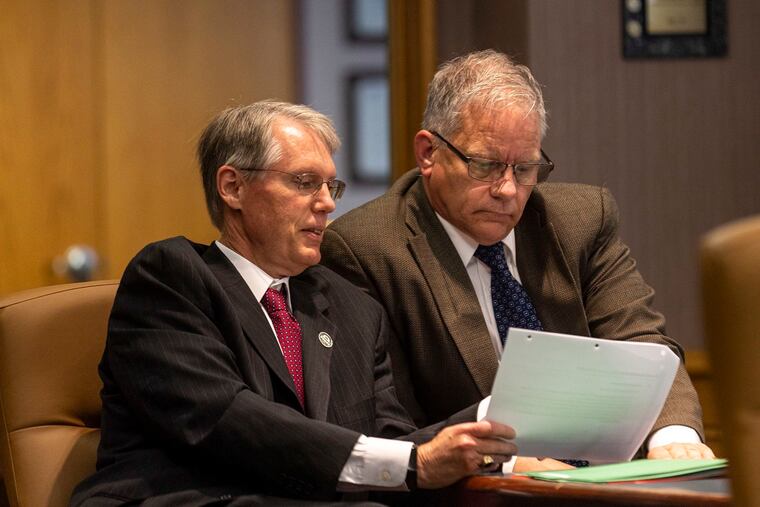Amid the pension’s crisis, it’s time for change at PSERS | Editorial
It is time for transparency, tougher rules, and accountability to safeguard pensions for current and future beneficiaries of the Pennsylvania Public School Employee System.

The Pennsylvania Public School Employees’ Retirement System has been having quite a year.
Executives with the $67 billion pension fund for Pennsylvania’s public school teachers were found to have stayed in lavish hotels on the agency’s dime. Staff have been faulted for relying on costly investments that produced mediocre results. The fund sprung a surprise increase on current contributors after misstating the profitability of its returns. A board member filed a lawsuit hoping to get access to basic documents. Oh, and the FBI is investigating.
» READ MORE: Time to mandate vaccines for city employees | Editorial
Even one of these events would be embarrassing for a public agency. To have all of them occur at once is nothing short of a crisis.
This is hardly an agency with a lot of room for error. Nearly half a million public school employees rely on the fund’s pension plan to make ends meet, and tens of thousands of teachers who currently work in classrooms are counting on the system for support during their own retirements in the years to come. Public pensions have long been a source of consternation among small-government and antitax groups, and the fund’s missteps only embolden critics of pensions for public employees.
The conflagration began when former state Treasury Secretary Joe Torsella began using his popular Twitter account to bring attention to what he described as wasteful practices at the pension fund. Typically, large investment portfolios are diversified across many kinds of investments, seeking to balance risk and reward. According to Torsella, the fund’s investments were unbalanced, heavily weighted toward expensive private equity firms. The firms promise superior performance in exchange for these high fees, but the results from the fund’s interactions with private equity have been mediocre at best.
Reporting in The Inquirer disclosed high travel costs for fund executives and managers. Pension executives and managers would journey to New York City, Beverly Hills, London, and other expensive destinations for meetings, occasionally spending more than $1,000 per night on hotel rooms. The fund finally acted to rein in spending on this practice earlier this month, but much of the damage to the credibility of the fund’s leadership was done.
To make matters worse, officials with the fund went into defense mode, deflecting questions from even its own members: State Sen. Katie Muth, who joined the pension system’s board earlier this year, filed suit against the fund when it refused to answer her very reasonable queries. While it is tempting to embrace a bunker mentality in times of trouble, the secrecy and evasiveness of fund executives have only created more questions and concerns. It is no wonder that the FBI is now involved, something that has already prompted new corrections and backtracking from the fund.
The first step required to restore faith in the system is the passage of State Rep. Brett Miller’s bill, which would mandate the recording of public meetings, guarantee public access to information on investment returns, and detail the fees charged by private equity money managers. These are all commonsense reforms, and the General Assembly should pass them.
Another reform that might be necessary is a formal cap on how much of the fund’s money can be invested with private equity. This would remove much of the temptation to engage in the expensive, globe-trotting wining and dining that has been a problem for the fund in the past. The combination of transparency and sensible guidelines would be one way to help get the fund back on track.
» READ MORE: Will PSERS troubles lead to Pension Reform?
The General Assembly should also consider adding financial experts to the fund’s board; there is currently no requirement for any of the board members to have a background in investment management. Considering the stakes involved, having financial experts serve on the board is another commonsense step.
Finally, while it is understandable that Glen Grell and Jim Grossman want an opportunity to clear their names and defend the quality of their work at the fund, they should not be allowed to do so while remaining in their current positions. Grossman’s day-to-day responsibilities have already been taken up by a Seattle firm. Beyond simply taking on Grossman’s tasks in order to provide him with time to respond to the probe, the fund’s board should also demand that he and Grell take administrative leave while the probe continues.
The fund’s current crisis demands nothing less.